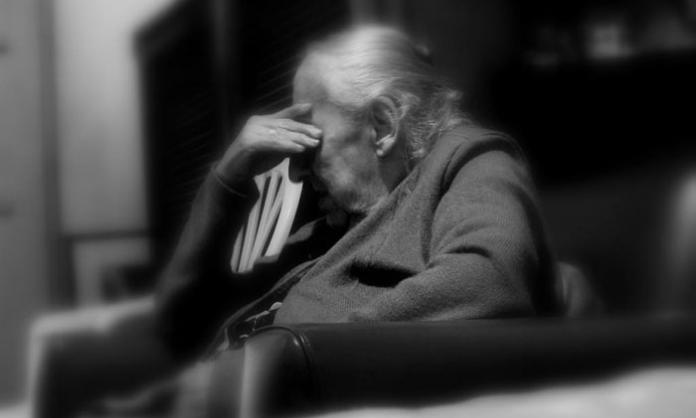Speaking at Canberra’s March for Justice rally on 15 March, Brittany Higgins made an important point: “I am cognisant of all the women who continue to live in silence. The women who are faceless. The women who don’t have the mobility, the confidence or the financial means to share the truth”.
Women in aged care facilities epitomise these silent victims. The recent Royal Commission into Aged Care Quality and Safety estimates that 50 sexual assaults are committed each week in Australian residential care, it describes the situation as a “disgrace” and “national shame”.
Dr Catherine Barrett, founder of the Older People and Sexual Rights Institute, compiled anecdotes of sexual violence experienced by aged care residents for a submission to the royal commission. The accounts are disturbing. One woman in her 90s was taken to hospital for “confusion” after reporting that she had been raped. A later medical examination showed “occipital fractures of both hips ... which was consistent with someone coming and lying on top of her”. An aged care worker described the case of an older woman, “non-ambulant, mentally incoherent and non-verbal due to advanced dementia”, whose abuse was only discovered when a staff member noticed vaginal abrasions.
The difficulties associated with reporting sexual abuse and being believed are compounded for older women. Ageist assumptions can lead to obliviousness to the problem. As Norma’s Project, a 2014 study into sexual abuse in older women, describes, “The lack of community awareness can partly be attributed to commonly held assumptions that older women are asexual. How, then, can they be the target of sexual assault? What is unimaginable and unacceptable becomes unsayable or invisible”.
Older women are also more likely to have their cognitive capacities questioned when reporting sexual violence. Suggestions that would be seen as inappropriate if directed towards young women—that they are imagining things, hysterical or otherwise incoherent—are made reflexively in aged care environments. In Barrett’s submission, some older women in aged care reported being taken to psychiatric facilities, or tested repeatedly for urinary tract infections, after coming forward with complaints of sexual assault. Others, left at the whim of their aged care provider and often powerless to leave, reported having to continue receiving care from people who had abused them.
It is generally difficult to prove sexual assault charges and have offenders charged. In an aged care setting, it is nearly impossible. The family of Dorothy Major, a woman who at 85 experienced abuse in a New South Wales aged care residence, told the ABC that the police dissuaded Dorothy from pressing charges on the basis that solicitors would “bamboozle” her. But short of legal redress, older victims of sexual violence face barriers to accessing even compassion and support. Margaret Solis was referred to an Elder Abuse hotline after being abused in an aged care facility in 2016, at 94 years old. She was told they were not equipped to assist with sexual abuse, and redirected towards a sexual assault hotline, who told her that they were unprepared to help older women.
Again and again, the institutions tasked with caring for the vulnerable under capitalism— whether children, the disabled or elderly— are revealed to be horrible places rife with abuse. Sexual abuse in aged care has increased as the number of privately run (that is, for-profit) facilities has grown. Between 2008 and 2019, for example, the number of sexual assaults increased by 65 percent. In these institutions, the vulnerable are treated as less than human; valued for the fees they contribute and little else. Offenders know they can get away with it because their victims lack the capacity to resist or are unlikely to be believed.
The Morrison government is responsible for aged care. But, as its inaction in relation to the Christian Porter rape allegations demonstrates, it is belligerently unconcerned about pursuing sexual assault allegations when they might have negative ramifications for the government. If Morrison refuses to take any action about rape allegations made against a high-ranking minister, why would he care about the proliferation of abuse in aged care facilities?
The outpouring of rage about sexual assault has been galvanised by the brave women willing to come forward and speak out against powerful men. Driving the anger is an awareness that this is just the tip of the iceburg, and that the official indifference to sexism has consequences for women at all stages of life and in all sorts of circumstances. It is a problem that demands a radical solution.








